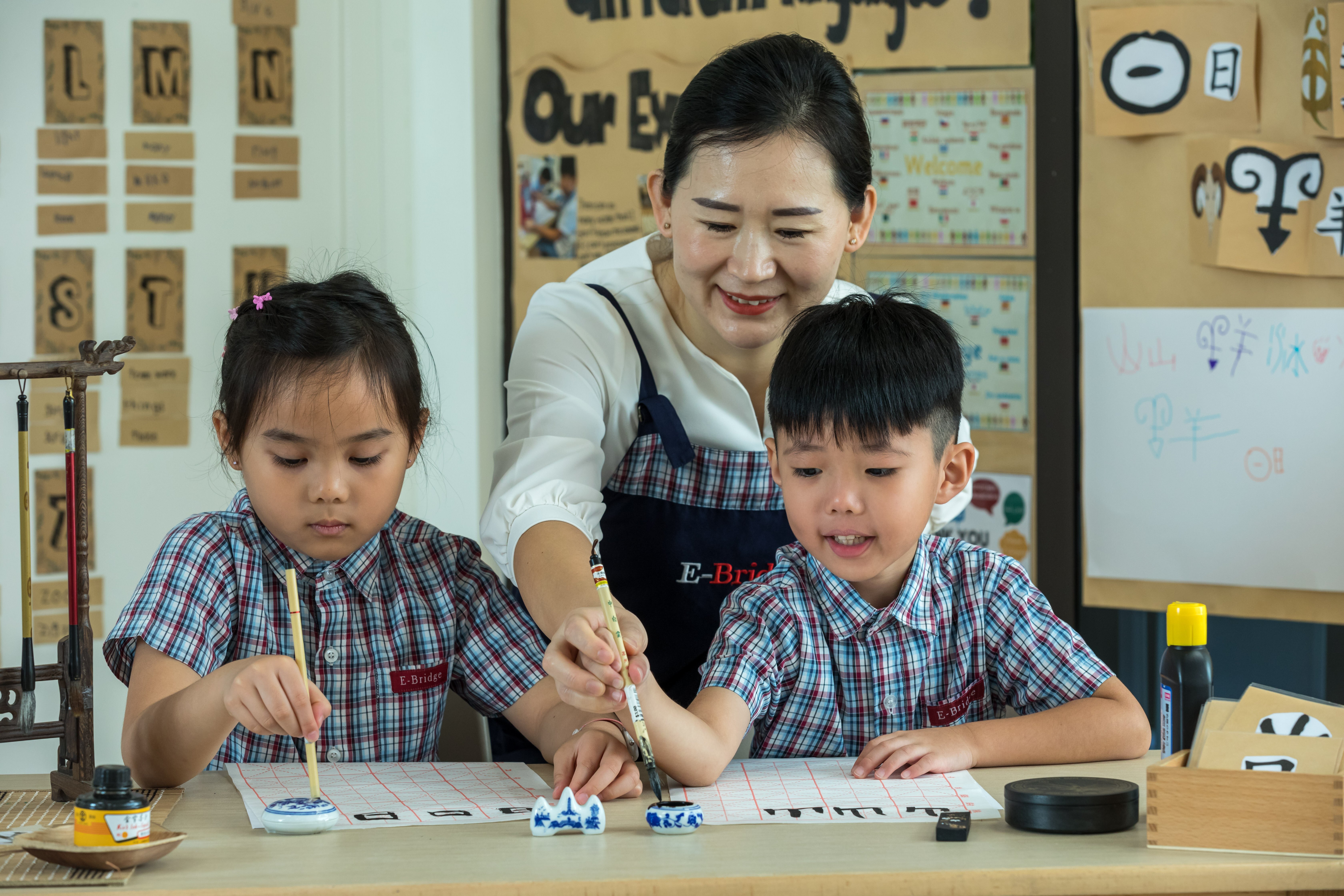.jpg)
E-Bridge Pre-School
E-Bridge Pre-School, part of the trusted EtonHouse Group, is an Anchor Operator and has been in operation since 2014. We provide high-quality childcare with a trusted programme for children aged 2 months to 6 years across 24 centres.
Providing your children with the best possible education and opportunities for their future is only natural. In today's interconnected world, bilingualism has become increasingly valuable, offering numerous advantages.
Therefore, it is essential to explore the benefits of introducing your child to a second language, specifically their mother tongue, during their kindergarten years.
As you embark on the journey of finding the best kindergarten in Singapore for your little one, it is crucial to also consider the long-term advantages that bilingual education can offer.
Delve into how early exposure to mother tongue language in kindergarten can significantly benefit your child and provide an extraordinary head start for their future success.
1. Improved cognitive development
During the early years, your child's brain is incredibly receptive to new information and experiences. Introducing a second language, such as their mother tongue, in kindergarten stimulates and enhances their cognitive development in remarkable ways.
As children engage in language learning activities, their brains actively process and make connections between different sounds, words, and meanings. This cognitive exercise strengthens neural pathways and enhances their capacity for analytical thinking. They become adept at identifying patterns, solving puzzles, and approaching challenges from different perspectives.
Moreover, learning a second language in kindergarten nurtures your child's memory skills. They practice recalling vocabulary, phrases, and sentence structures, training their brain to store and retrieve information efficiently.
Bilingual children also often exhibit greater flexibility in their thinking processes. Their brains become more adaptable, as they constantly switch between languages and navigate between different linguistic systems.
Thus, providing your child with the opportunity to learn their mother tongue language in kindergarten offers them a powerful cognitive advantage.
2. Enhanced language skills
Introducing a second language at an early age strengthens your child's understanding of language structures, vocabulary, and grammar. As they engage in language activities, they develop a heightened awareness of how language works, enabling them to express themselves more accurately and fluently. This improved grasp of linguistic concepts translates into stronger language skills in their mother tongue as well. They become more adept at articulating their thoughts, expanding their vocabulary, and structuring sentences with clarity and precision.
Children who learn a second language are known to exhibit enhanced language skills, which is why some of the best kindergartens in Singapore emphasise learning the mother tongue. Linguistic growth has far-reaching benefits, empowering children to become effective communicators and navigate diverse cultural settings with ease.
3. Increased cultural awareness
Language and culture are intricately linked and early language learning provides a gateway to embracing diversity, fostering cultural awareness, and nurturing a global mindset.
When your child engages in second language acquisition, they not only learn words and grammar but also immerse themselves in the customs, traditions, and values of another culture. Through stories, songs, and interactive activities, they gain insights into different ways of life, celebrations, and social norms. This exposure broadens their horizons and instils curiosity and appreciation of human diversity.
As your child learns about different cultures, they begin to recognise that there are multiple perspectives and ways of doing things. This cultivates open-mindedness and a positive attitude towards diversity, leading to a more inclusive and harmonious society.
The best kindergartens in Singapore encourage learning the mother tongue to foster respect, empathy, and a sense of belonging among children from different cultural backgrounds.
4. Better academic performance
Studies have consistently shown that learning a second language, such as the mother tongue, at an early age can significantly enhance a child's academic performance across various subjects.
Bilingual children often exhibit advanced reading and writing skills compared to their monolingual peers. Cognitive advantage also positively impacts academic performance in subjects such as math, science, and problem-solving activities. Your child will be able to approach complex tasks with a broader perspective, by using theirapplying critical thinking and creative problem-solving skills to arrive at innovative solutions.
As you consider the best kindergarten in Singapore for your child, remember that investing in their bilingual education will not only unlock their academic potential but also provide them with a unique set of skills and perspectives that will benefit them throughout their educational and professional lives.
Building bright futures by embracing mother tongue in kindergarten

Choosing a kindergarten that emphasises the importance of mother tongue language learning can have a profound impact on your child's development.
So, as you search for the best kindergarten in Singapore, remember to consider programmes that prioritise bilingual education.
At E-Bridge Pre-School, we firmly believe in the transformative power of bilingual education, particularly in nurturing the mother tongue language skills of young learners.

